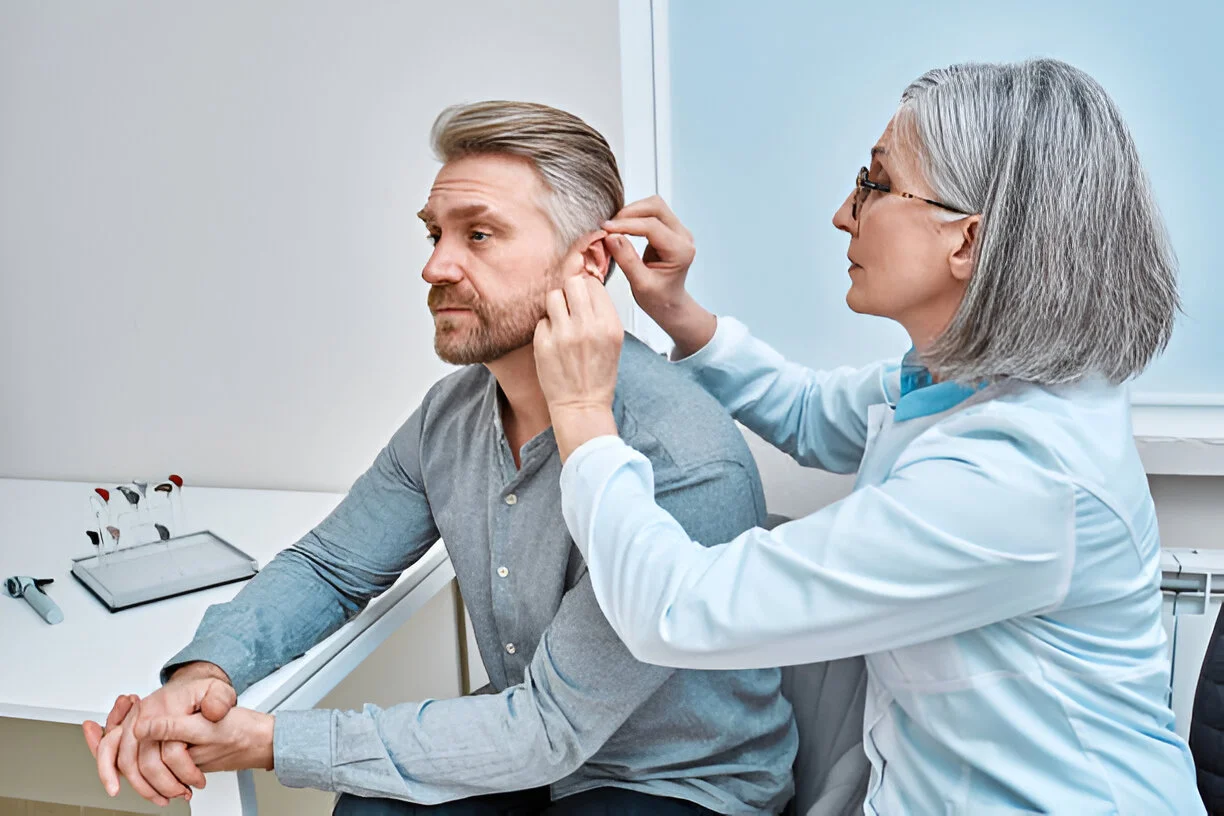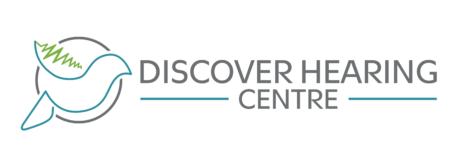Understanding the Different Stages of Hearing Loss

Hearing loss is one of those conditions that millions of people worldwide do not know they have. Often, they only notice it or get it treated when it starts to affect their daily lives. Therefore, it’s critical to understand the different stages of hearing loss to see the signs early and begin managing them effectively before they get worse.
To many people, hearing loss means a complete loss of the ability to hear, but there is much more to it. Hearing loss refers to a decrease in the ability to hear sounds either partially or completely. It can also affect one or both ears and range from mild to severe. Similarly, it can also be caused by a wide range of factors, not just exposure to loud noises and aging but also through infections and genetic factors.
Recognizing the different stages of hearing loss is critical because it helps you identify the severity and how to treat it appropriately. The earlier you can get signs checked out and detect the severity and cause, the earlier you can improve your quality of life and communication abilities without significant disruptions.
So, today, we aim to give you a good overview of the different stages of hearing loss.
What is Hearing Loss?
Generally, hearing loss can be categorized into three main types:
- Sensorineural Hearing Loss: This occurs due to damage to the inner ear or the auditory nerve and is often permanent. Common causes include aging (presbycusis) and noise-induced hearing loss.
- Conductive Hearing Loss: This type is due to problems in the outer or middle ear, such as ear infections, earwax buildup, or otosclerosis. It is often temporary and can be treated medically or surgically.
- Mixed Hearing Loss: A combination of sensorineural and conductive hearing loss, indicating damage in both the inner and outer or middle ear.
Stages of Hearing Loss
As mentioned above, there are different stages of hearing loss, all with different symptoms and signs to watch out for.
Mild Hearing Loss
Mild hearing loss is the inability to hear sounds below 25-40 decibels (dB), so you may struggle to understand speech in noisy environments and miss subtle sounds. This makes it the hardest to detect as well, as most will just wave it off as being in a louder environment, so it’s expected to miss bits and pieces of a conversation.
It can be caused by age-related changes, prolonged exposure to loud noises, and minor ear infections, which also often go undetected. Early symptoms include difficulty hearing soft sounds, trouble following conversations in noisy settings, and needing to increase the volume on electronic devices.
In daily life, you may experience some difficulties in group conversations or understanding speech, especially in noisy backgrounds, but this is often dismissed. Potential treatments include regular hearing assessments, the use of hearing aids, and preventive measures like avoiding excessive noise exposure.
Moderate Hearing Loss
Moderate hearing loss affects sounds between 41 and 70 dB and significantly impacts the ability to understand speech, even in quiet environments. It is most commonly caused by chronic exposure to loud noises, aging, and certain medical conditions and can significantly impact daily life. You may find yourself frequently asking for someone to repeat, having trouble hearing conversations over the phone, or missing parts of speech.
If you are increasingly reliant on trying to lip read or follow visual cues, have great difficulties in noisy environments or find yourself withdrawing from social interactions, it is critical to seek help immediately. Treatment options include more advanced hearing aids, auditory rehabilitation programs, and possibly surgical interventions.
Severe Hearing Loss
Stage three of hearing loss is severe hearing loss, generally identified when hearing thresholds are between 71-90 dB. In this stage, you often cannot hear everyday speech, and you face great difficulty in understanding speech, if at all, even with amplification, have trouble communicating and are very reliant on lip reading. It can severely impact your daily life and significantly disrupt social and professional interactions.
Severe hearing loss is often caused by genetic factors, severe noise exposure, and progressive ear diseases and may require more extensive and potentially intrusive treatment, such as cochlear implants, advanced hearing aids, and comprehensive auditory rehabilitation programs.
Profound Hearing Loss
Profound hearing loss is characterized by the inability to hear sounds below 90 dB, so this stage represents near-total hearing loss. It will render you completely dependent on nonverbal communication methods and present significant challenges in social and professional settings, with the potential to isolate you from others.
The main symptoms are the inability to hear most sounds, relying on sign language or some sort of visual communication method, and posing severe communication barriers across most situations in your life. Common causes are congenital factors, severe infections, and extreme noise exposure, and treatment options become increasingly challenging. Cochlear implants, sign language training, the use of assistive listening devices, and support groups are among the available treatment options.
Also Read: Top 4 Major Causes of Hearing Loss & How to Prevent It
Implications of Hearing Loss on Daily Life and Communication
Social and Emotional Impact
Hearing loss can have severe implications on daily life and communication. This is made even more challenging by the fact that if the hearing loss is slow but consistent, you may not even realize it until it significantly affects your daily life. It can lead to withdrawal from social activities and relationships due to problems understanding and communicating and cause feelings of frustration, anxiety, and depression. If you find yourself in situations like this, seeking professional counselling, joining support groups, and utilizing communication strategies can help.
Professional and Educational Impact
Another area where hearing loss can cause significant challenges is in the workplace or education. You may have difficulties understanding colleagues and participating in meetings, which can affect your job performance, while students with hearing loss may struggle in traditional learning environments.
To help you deal with these issues, you should consider implementing assistive technologies, modifying teaching methods, and providing workplace accommodations.
Communication Strategies
There are a few communication strategies to consider:
- Lip Reading and Sign Language: Learning these skills can help you improve communication if you’re experiencing severe or profound hearing loss.
- Assistive Listening Devices: Devices such as FM systems and hearing loops can improve hearing in various settings.
- Family and Community Support: Encouraging family involvement and community support can help you overcome some of the communication challenges.
Diagnosis and Management of Hearing Loss
There are different ways to diagnose and manage hearing loss at the various stages.
Hearing Assessments
It begins with the different types of hearing tests that can be used to assess your hearing levels and determine if you’re suffering from hearing loss and up to which level. The most common types are pure-tone audiometry, speech audiometry, and tympanometry. Getting these tests done regularly allows you to identify hearing loss early, which can make interventions and treatment more effective.
Getting routine hearing evaluations can help monitor and manage your hearing health efficiently, especially if you’re at risk, for example, by working in a noisy environment or if you have a family history of hearing issues.
Treatment and Rehabilitation
Depending on the severity of your hearing loss, different treatment and rehabilitation options can help you address hearing problems and avoid major disruptions and challenges in your everyday life.
Advanced hearing devices or cochlear implants can significantly improve hearing ability and quality of life. Auditory rehabilitation programs can help you develop skills to improve hearing and communication, and the emotional and psychological support of support groups can aid in coping with the impacts of hearing loss.
Protect Your Hearing
Hearing loss is a complex condition with widely varying degrees of severity. Understanding the different stages—from mild to profound—can help you recognize early symptoms and seek appropriate interventions before they significantly impact your daily life. The stages of hearing loss can present challenges as unique as the causes and implications, so regular hearing check-ups and awareness of hearing health are essential to helping you improve your quality of life.
If you or a loved one is experiencing hearing difficulties, it is crucial to consult with a hearing specialist. Early intervention can make a substantial difference, so don’t just dismiss early signs; contact the Discovery Hearing Centre for professional assessments and personalized hearing care solutions.
Discover Hearing Centre is a local clinic specializing in the treatment of hearing loss; we’ve worked with hundreds of patients to help them maintain independence. Whether you’re experiencing hearing loss or tinnitus, or are looking for a hearing test in Waterloo, we’re dedicated to improving your quality of life through better hearing. When you choose us, you choose a team committed to your well-being.
Call us today at 519-208-4327 or fill out our convenient online form to learn more about how we can help you with hearing loss issues.
You Might Also Like
Top 4 Major Causes of Hearing Loss
What Is Tinnitus? Causes, Symptoms, and Treatment Options
Does Tinnitus Get Worse With Age?
Have Questions?
Call our office if you have any questions about your hearing loss or anything else related to hearing. We are happy to help and answer any questions you may have.





